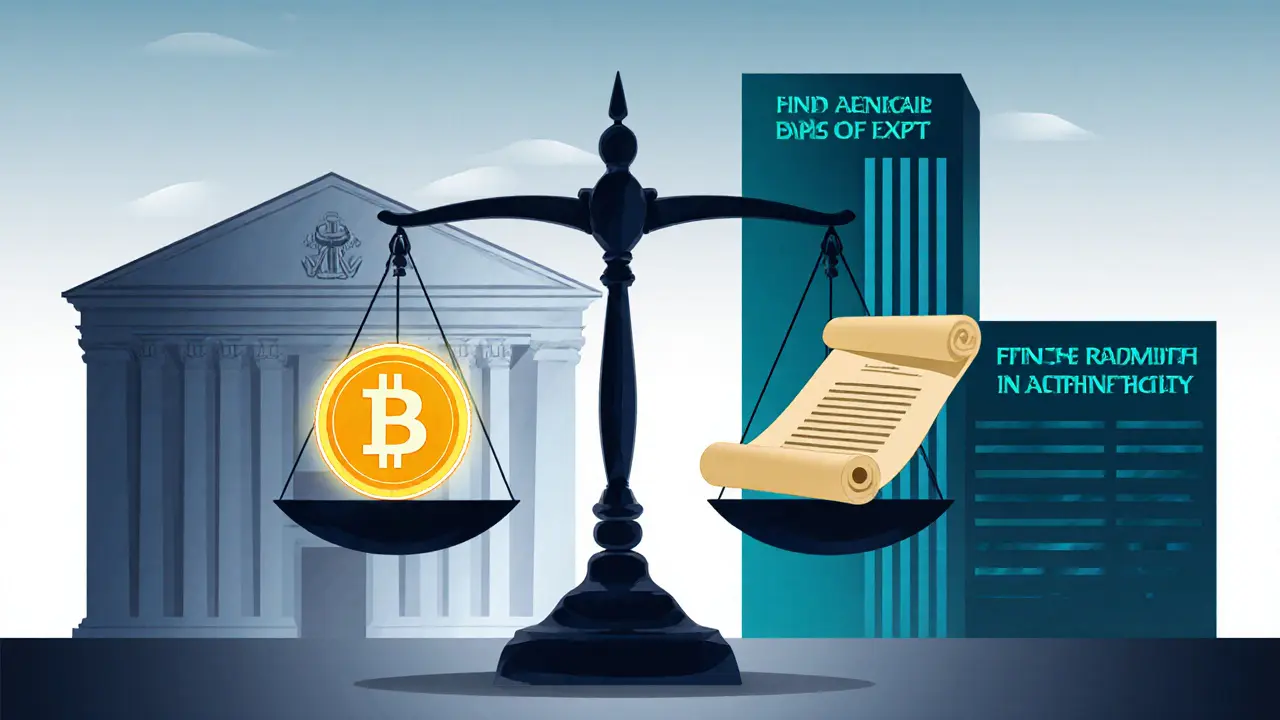Egypt Crypto Promotion Penalty Calculator
Select Activity Type
Potential Penalties
Penalty Overview Table
| Activity | Imprisonment | Fine (EGP) |
|---|---|---|
| Trading or selling crypto without license | Up to 5 years | 1M - 10M |
| Promoting crypto projects on social media | Up to 3 years | 1M - 8M |
| Operating an unlicensed exchange or wallet service | Up to 7 years | 2M - 10M |
Imagine posting a tweet about Bitcoin, only to find yourself facing jail time. In Egypt, that scenario isn’t hypothetical - the state imposes harsh imprisonment penalties for any unauthorized crypto promotion Egypt activity. The rules are tucked into a web of laws, fines, and enforcement actions that make even casual social‑media chatter risky.
Legal backbone: Law No. 194 of 2020 and related statutes
The core prohibition lives in Law No. 194 of 2020 Egypt’s anti‑cryptocurrency law that bans issuing, trading, or promoting digital assets without a license. Enforced jointly by the Central Bank of Egypt the country’s monetary authority, which issued the first Bitcoin warning in January 2018 and the Egyptian Financial Regulatory Authority the regulator overseeing capital markets and non‑bank financial services, the law leaves no room for loopholes.
Adding another layer, the Capital Market Law No. 95 of 1992 requires a FRA‑approved prospectus for any public offering, extending to crypto‑related fundraising. Together, these statutes form a strict, dual‑penalty regime.
What the penalties look like
Violators face two simultaneous punishments: a prison term (the length varies by case) and a hefty fine ranging from one million to ten million Egyptian pounds (approximately $516,340). The law explicitly states that “whoever violates this shall be imprisoned, and fined no less than one million pounds and no more than LE10 million, or one of these two penalties.” This flexibility lets courts match the severity of the breach.
| Activity | Imprisonment | Fine (Egyptian Pounds) |
|---|---|---|
| Trading or selling crypto without license | Up to 5 years | 1M - 10M |
| Promoting crypto projects on social media | Up to 3 years | 1M - 8M |
| Operating an unlicensed exchange or wallet service | Up to 7 years | 2M - 10M |
Scope of prohibited activities
The law’s language is intentionally broad. It covers not only direct trading but also any form of marketing, solicitation, or education that encourages the public to invest in digital assets. This includes:
- Website articles touting crypto returns.
- Social‑media posts urging followers to buy or stake tokens.
- Promotion of staking the practice of locking crypto to earn rewards, considered a financial service under Egyptian law.
- Offerings of Decentralized Finance (DeFi) protocols that provide lending, borrowing, or yield‑earning without a traditional bank.
- Financial uses of Non‑fungible tokens (NFTs) digital collectibles used as investment vehicles or collateral.
How authorities enforce the rules
Both the CBE and FRA monitor online platforms, maintain a “negative list” of unlicensed operators, and encourage citizens to report suspicious promotions. Enforcement actions have included raids on crypto‑exchange offices, arrests of influencers, and the removal of illicit content from major social networks. The regulators frame the crackdown as a safeguard for national security and financial stability, arguing that unregulated crypto can fuel fraud, cybercrime, and destabilize the Egyptian pound.

Crypto adoption vs. enforcement reality
Paradoxically, Egypt ranks second in the Arab world for crypto ownership. A 2022 TripleA report counted roughly 1.79million crypto owners, about 1.75% of the population, and estimates suggest up to three million Egyptians hold digital assets. This vibrant underground market collides with a legal environment that threatens imprisonment for any public promotion.
The mismatch creates a compliance nightmare: legitimate blockchain startups struggle to obtain the required licences-often a lengthy, opaque process-while thousands of hobbyist traders operate under the radar, constantly risking exposure.
Compliance tips for anyone operating in Egypt
If you’re a business or influencer who wants to stay on the right side of the law, follow these practical steps:
- Secure explicit written authorization from the Central Bank of Egypt or the Egyptian Financial Regulatory Authority before offering any crypto‑related service.
- Publish a FRA‑approved prospectus for any public fundraising campaign; otherwise, it’s deemed illegal.
- Avoid any language that promises guaranteed returns or financial gains on digital assets.
- Separate educational content from promotional content; clearly label any paid sponsorship.
- Monitor the FRA’s “negative list” to ensure the platforms you use are not flagged as unlicensed.
Even with these precautions, the legal ambiguity leaves room for interpretation, so consult a local attorney familiar with financial regulations before launching any crypto‑related activity.
Future outlook: No sign of liberalization
Recent statements from both regulators reiterate “extreme caution” and “urgent” warnings to market participants. No legislative amendments have softened the penalties, and the government continues to view cryptocurrencies as a threat to monetary sovereignty. Until a clear licensing framework emerges-something experts deem unlikely in the near term-imprisonment and heavy fines will remain the primary deterrents.
TL;DR - Quick Takeaways
- Law No. 194 of 2020 bans any crypto promotion without a CBE/FRA license.
- Penalties: up to several years in jail+fine of1M-10MEgyptian pounds.
- Prohibited actions include trading, staking, DeFi, NFT‑based finance, and social‑media marketing.
- Enforcement is active: monitoring, raids, and a public “negative list.”
- Despite strict rules, ~3million Egyptians still hold crypto, creating a compliance dilemma.
Frequently Asked Questions
What exact activities can lead to imprisonment under Egyptian law?
Any crypto‑related activity performed without explicit authorization from the Central Bank of Egypt or the Egyptian Financial Regulatory Authority can trigger imprisonment. This includes trading, promoting, staking, offering DeFi services, running an exchange, or using NFTs for financial purposes.
How long can a jail sentence be for illegal crypto promotion?
Sentences vary by offence, but courts have imposed up to five years for unauthorized trading, up to three years for pure promotional activity, and up to seven years for operating an unlicensed exchange or wallet service.
Is a fine mandatory if I’m sentenced to prison?
The law allows either penalty or both. Judges often impose both to reinforce deterrence, especially for repeat offenders.
Can I obtain a license for crypto activities?
Yes, but the process is lengthy and requires proof of capital, AML/KYC procedures, and approval from both the CBE and FRA. Most applications are scrutinized heavily to ensure they don’t threaten financial stability.
What should I do if I’m accused of illegal crypto promotion?
Seek immediate legal counsel with expertise in Egyptian financial law. Preserve all communications, cease any promotional activity, and be prepared to demonstrate attempts to obtain the required licences.


Author
Ronan Caverly
I'm a blockchain analyst and market strategist bridging crypto and equities. I research protocols, decode tokenomics, and track exchange flows to spot risk and opportunity. I invest privately and advise fintech teams on go-to-market and compliance-aware growth. I also publish weekly insights to help retail and funds navigate digital asset cycles.